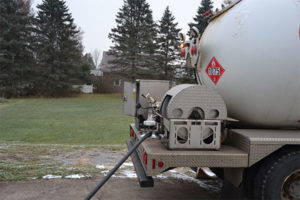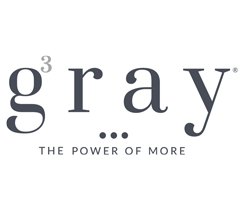Aegis energy leader advises propane retailers during pandemic
While there’s a chance your residential customers are burning more propane than usual during states’ stay-at-home orders, one insurance industry leader is reminding retailers to consider the safety aspects they face during the coronavirus pandemic.

Photo by LP Gas staff
Customers who are upping their propane usage and not checking their tank inventory levels increase the risk of an out-of-gas situation. To restore that service, retailers are confronted with a decision on whether to enter the customer’s home to perform a mandatory leak check and pressure test.
Tom Mullaney, vice president of risk engineering for Aegis General Insurance Agency’s energy division, urges clients to get ahead of the situation by sharing with customers how company policies might have changed during the pandemic. The new policies, he stresses, are in place to protect the safety of employees and customers.
“Now, instead of calling us when your tank is at 20 or 25 percent [full], call us at 30 to 35 percent,” he says propane retailers should advise their customers. “We need to put you on a route so you don’t run out of gas.”
Mullaney says it’s most important for retailers to first contact those customers who have a history of tank runouts, followed by a general email or letter to all customers about the potential for increased usage during the pandemic and to pay close attention to tank levels. It’s also a good time for retailers to promote their keep-full or automatic-fill programs.
Companies can explain to customers how “this is an unprecedented time for us” and, in order to get through this together, “we need you to do X and we’re going to do Y,” Mullaney says.
If a retailer is faced with an out-of-gas customer and company policy dictates that employees are not to enter homes during the coronavirus pandemic, Mullaney advises his clients to choose an appropriate approach based on whether the tank is owned by the customer or company.
Here’s what he says:
- For a customer-owned tank: Put pressure back on the system and place a gauge on the system. If a leak is detected and company policy dictates that employees are not to enter the home, turn off the tank and tag it. The customer’s out-of-gas delivery paperwork should properly document the leak. The customer should be informed that another delivery will not be made by the company until the system is inspected and repaired by a qualified technician. All paperwork should indicate appropriate times and pressures, and contain customer and employee signatures as well as bold documentation that the process was undertaken due to the COVID-19 pandemic. The files should also be held separately to ensure the company follows up on these customers first after the virus passes or the customers report that repairs have been made by a qualified technician.
- For a company-owned tank: Follow the same process, but lock out the tank until the system can be repaired.
Propane companies have adopted a wide range of policies for servicing customers during the pandemic, Mullaney says. Some are continuing with installations, while others are limiting service to new construction. Some are choosing to enter homes to reestablish service – hopefully with the proper personal protective equipment (e.g., nitrile gloves and N95 masks in a best-case scenario or cloth masks at minimum) and clear communication with the customer about social distancing, says Mullaney, adding it’s also important to know the current and past health of residents. Others aren’t going into homes at all and will not deliver to out-of-gas accounts.
“We are open to discussing various policies and procedures with our clients to ensure that they are taking the safety of all people involved into account,” Mullaney says. “What I don’t want to hear is we’re delivering the gas, but we’re not reinstating the system or putting a gauge on the system, so we’re just rolling the dice.”
The retail propane business during a pandemic involves a delicate balance of keeping employees and customers safe and healthy while still performing the needed work to meet customers’ needs.
“You can’t sacrifice one type of safety for another. You can’t say we’re going to sacrifice the health of our employees and customers in order to do this service work and operating willy-nilly and not giving our employees any protection,” Mullaney says. “On the other side, you can’t sacrifice everyone’s health and safety by not doing the work. It really is a double-edged sword.”
















